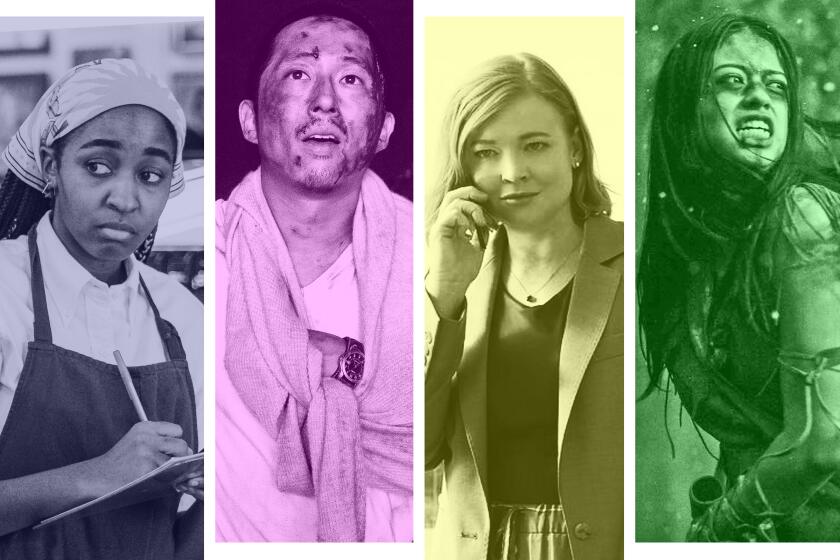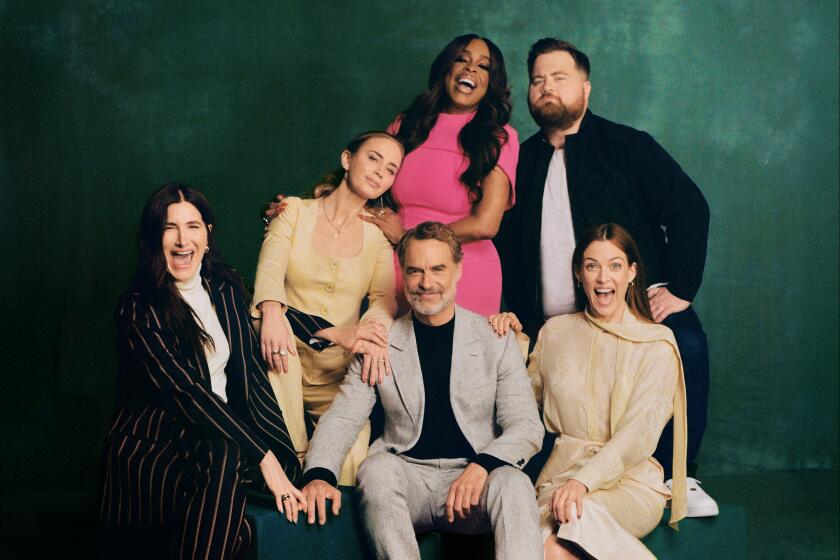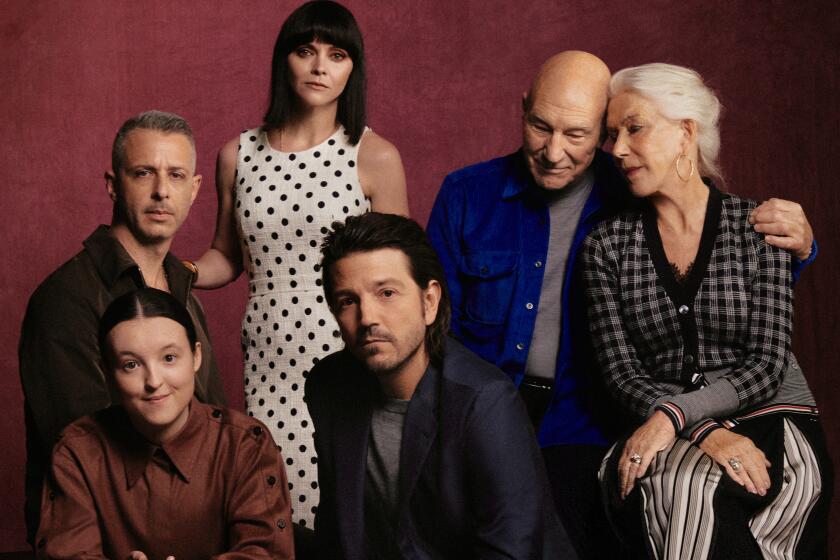Why Dominique Fishback initially panicked after agreeing to star in ‘Swarm’
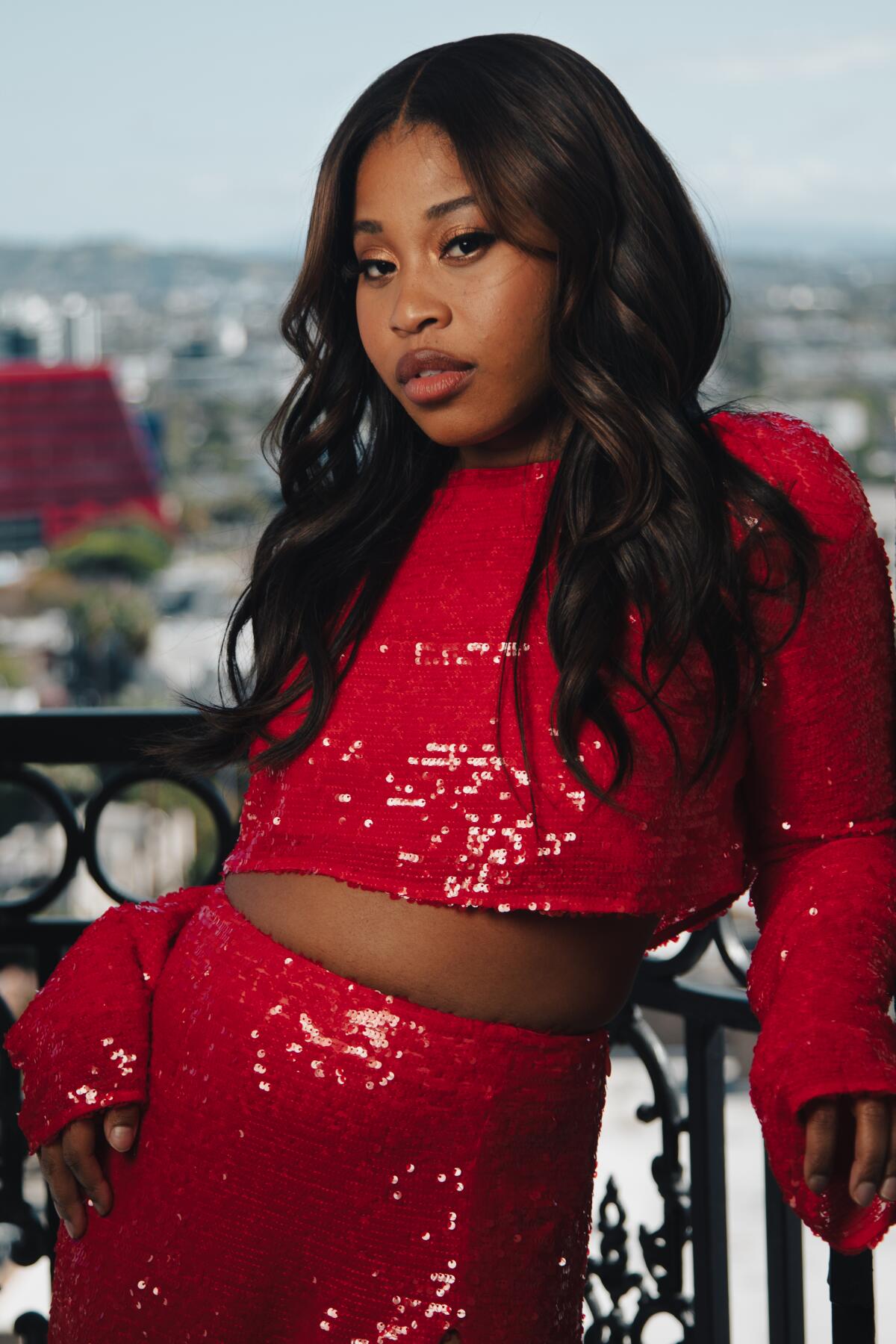
Shortly after Dominique Fishback signed on to portray an obsessive fan-turned-serial-killer in the genre-busting limited series “Swarm,” mild panic set in. She had been excited to take on the starring role of Dre, an emotionally stunted young woman driven to violence by personal tragedy. Then she began to have doubts. “I’m like, ‘Why did I say I wanted to do this?’ ” a delightfully candid Fishback says during a recent Zoom call. “I’ve been working through spirituality in the way of wanting to bring light into the world with my art. But … we’re in a world of duality. You can’t have light without dark.”
Created by “Atlanta” collaborators Donald Glover and Janine Nabers, “Swarm” embraces that dichotomy, balancing bursts of harrowing violence with moments of gleeful black comedy. A wry commentary on the toxicity of modern fan culture, the series follows Fishback’s Dre as she grapples with the death of her sister Marissa (Chloe Bailey). Eventually, she sets out on a road trip to meet R&B icon Ni’jah, an obvious Beyoncé avatar, whom Dre idolizes so much that she murders anyone who disrespects the performer.
Relying largely on her wide, expressive eyes, Fishback beautifully telegraphs Dre’s fractured state of mind, conveying her feelings of jealousy, desire, confusion, rage, alienation or amusement, with relatively little dialogue. “It really was like an actor boot camp,” Fishback says.
‘Swarm’ showrunner Janine Nabers and star Dominique Fishback break down Prime Video’s horror/comedy about a murderous fan, premiering Friday.
Yet in accepting the part, she had to set aside any apprehension she felt about how the role might be perceived. “This is the first time we’re seeing a Black female serial killer — I had a fear in my mind that maybe [people] wouldn’t want to see it,” Fishback says. “As a Black artist, it seems as though when we make art, we become a representation of all of us. And as artists, we try to say, ‘Hey, we just want the opportunity to stretch like other actors have gotten to do, to play characters so far outside of who we are, so far outside of the norm of what you often see us getting to play.’”
There’s no question that Dre is a marked departure for Fishback, who’s most well-known for complex yet deeply sympathetic characters. She had her television breakthrough in 2014 portraying a struggling single mother in David Simon’s 1980s-set public-housing drama “Show Me a Hero.” More recently, she earned acclaim for her performance as Deborah Johnson, romantic partner to Daniel Kaluuya’s Black Panther Party leader Fred Hampton, in the Oscar-winning 2021 historical drama “Judas and the Black Messiah.”
Our BuzzMeter panel of veteran TV journalists predicts the winners in 14 categories of the 2023(?) Emmys. You can, too, in our weekly polls.
Fishback, hailing from East New York, was drawn to acting from a young age and tenaciously pursued her creative passions. As an adolescent, “I started Googling ‘free acting programs for kids in New York City,’ ” she says. “I got into this theater program where in order to act you had to write your own stuff. So, I started writing monologues and poetry.” She continued writing while studying acting at Pace University. For her thesis, Fishback penned a one-woman show that she performed off-Broadway called “Subverted,” in which she played 20 different characters. Soon after, she began landing small parts on such TV series as “The Americans” and “The Affair.”
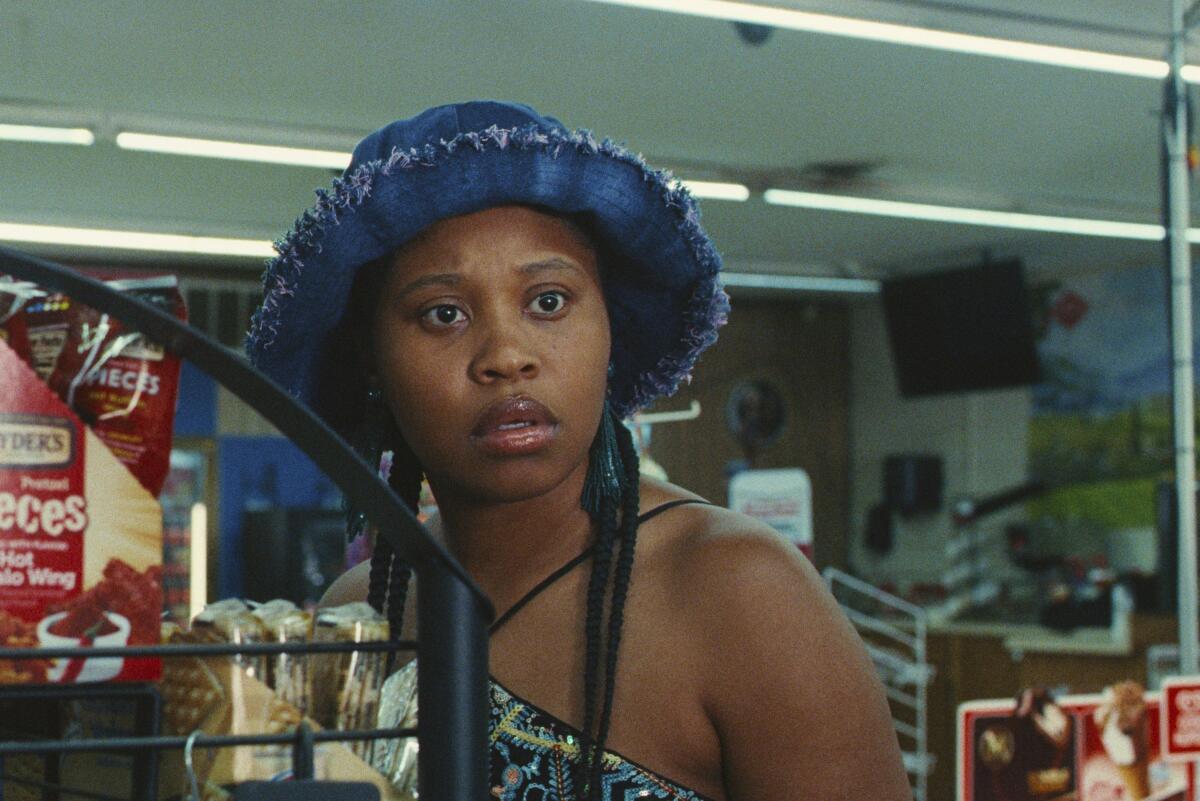
Assuming the actor might have too many other commitments to be interested in the demanding part of Dre, “Swarm’s” creators first thought of her for Marissa. “We approached her like the star that she is, like, ‘Hey, would you maybe be willing to make an appearance in this tiny show?’” Nabers says. “The fact that she was so drawn to Dre was really surprising for us. We were overjoyed.”
Not only did Fishback respond to the challenging character, but she also elected to produce the series. The producer title reflected Fishback’s unwavering commitment to the project, and it also better positioned her to ask for access to a therapist on the days when the most horrific scenes were filmed. “I didn’t know if I was going to have nightmares,” Fishback says. “I didn’t know how I was going to react. I wanted to be proactive as opposed to trying to fix something at the tail end.”
“Swarm” opens in April 2016, with Dre having just bought Ni’jah tickets that she can’t begin to afford. Only a short time later, Marissa dies by suicide after a fight with boyfriend Khalid (Damson Idris), and Dre snaps. She impulsively bludgeons Khalid to death in his kitchen, then seems shocked by her own capacity for violence. “After she beats his head in and then comes up and a tear just rolls down [her cheek], that is something I’ve seen in horror movies and thrillers my whole life, and I’ve never seen my face or someone who looks like me get to have that blood and have those ‘Carrie’ moments,” Fishback says, referring to the classic 1976 Brian DePalma film.
Subsequent episodes skip forward through June 2018, a timeline that corresponds to various high-profile events from Beyoncé’s life. “Swarm” opens with a winking title card that informs viewers: “This is not a work of fiction. Any similarity to actual persons, living or dead, or actual events, is intentional.” (Fishback has her own ties to the singer, having played a young Gloria Carter, mother of Beyoncé’s husband, Jay-Z, in his 2017 “Smile” video.) Over time, Dre becomes savvier, bolder, coming into her own power by taking the lives of others.
“As she kills, she gets more confident,” Fishback says. “It wasn’t like she started off in these nice clothes and then she kills and gets all grungy. She actually has shape. We see her body. She’s got nice outfits. There was a different element that I got to explore as an actor, as a woman, because Dre got to go through so many things.”
For actors Riley Keough, Emily Blunt, Kathryn Hahn, Niecy Nash-Betts, Murray Bartlett and Paul Walter Hauser, learning new skills come with the job.
The costumes, designed by Dominique Dawson (“Colin in Black & White”), helped Fishback find ways into the character — a godsend for the actress who admits that she sometimes had difficulty locating Dre from the scripts alone.
“Journaling is something that I’ve done for all my characters,” Fishback says. “But with this character on the page, she really frustrated me. Psychologically, I couldn’t find the through line, so I knew that I would be forcing myself to journal as her when I don’t think she journals. I wanted to respect the character and not try to force a process on her. So, I journaled as myself and then allowed myself to be present [on set] and be free, because she’s a very impulsive character.”
Nabers says Dre was relatively unknowable by design. “One of the things we wanted to do with this show to challenge ourselves was to write a character that doesn’t say a lot, but you feel what they feel through their actions and through their relationship with this pop star but also with their sister,” Nabers says. “To see Dominique tackle that was really mesmerizing.”
When “Swarm” wrapped, Fishback took a vacation to Costa Rica, but now that she’s back, the ambitious actress is ready to get to work. “How I pick my roles is based off of my inner child,” says the actor, who will be back on the big screen in this summer’s “Transformers: Rise of the Beasts.” “I just go back to her—and she wants to do a rom-com.”
In a roundtable conversation, Diego Luna, Helen Mirren, Bella Ramsey, Christina Ricci, Patrick Stewart and Jeremy Strong dive deep into their appreciation of writers, mothers and “not giving a f--”
More to Read
From the Oscars to the Emmys.
Get the Envelope newsletter for exclusive awards season coverage, behind-the-scenes stories from the Envelope podcast and columnist Glenn Whipp’s must-read analysis.
You may occasionally receive promotional content from the Los Angeles Times.

